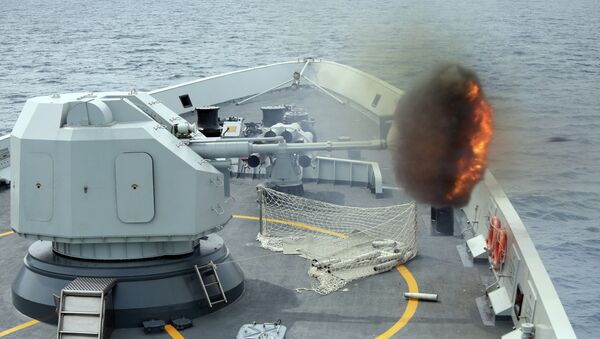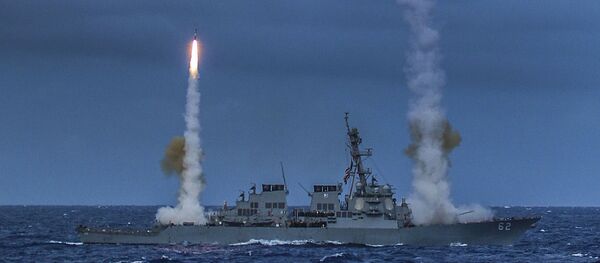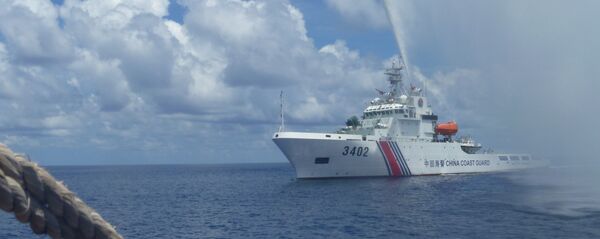"Conveying a so-called message about security through the exhibition of military might, and furthermore describing the events as an act of deterrence, is something that the US has done far too many times," Zhong writes.
"Regardless of how many times it may have gone smoothly in other parts of the world, the US has chosen the wrong opponent by selecting China for this type of game."
Over the weekend, the USS John C. Stennis and the USS Ronald Reagan began dual-carrier flight operations in the Philippine Sea. These drills are meant to send a message as tensions escalate in the neighboring South China Sea, where Washington has disputed Beijing’s right to construct artificial islands in the Spratly archipelago.
The Pentagon has also conducted a series of "freedom of navigation" patrols within the 12-mile territorial limit of these land-reclamation projects.
"Behind all of this is lack of patience and brassy moves and it also reveals a nature of hegemony beneath the surface," Zhong writes.
"Statements from high ranking officials in the US military as well as the aircraft carrier drills themselves once again demonstrate that the US is definitely not a regional security safeguard, and instead precisely a troublemaker," he says. "In the regard of the South China Sea issue, the US is playing an extremely destructive role."
He also points out that Washington is operating outside its jurisdiction.
"The United States is a country outside the territory of the South China Sea, coming from one side of the Pacific Ocean all the way to the other side of the Pacific Ocean to demonstrate their military power…[in] an effort to maintain hegemony there at all costs," Zhong writes.
"This deceitful business is despised in the regard of international law, and it is also harmful to the security benefits of the country."
Given that China has territorial claims in the region and the US does not, Beijing will not cow to Washington intimidation.
"China’s will to maintain national sovereignty and territorial integrity is as solid as a boulder," Zhong says.
"China will continue to maintain strict supervision of the sea area conditions and will take appropriate measures should there be any incidences, and defend against the occurrence of situations that harm Chinese territorial sovereignty or security benefits," he writes.
While China lays claim to most of the South China Sea, there are overlapping claims by Brunei, Taiwan, the Philippines, Vietnam, and Malaysia. Roughly $5 trillion in trade passes through the waterway annually.
"China will not let other countries have their way with their temper or to act arbitrarily regardless of the rules in the regard of South China Sea stability."





